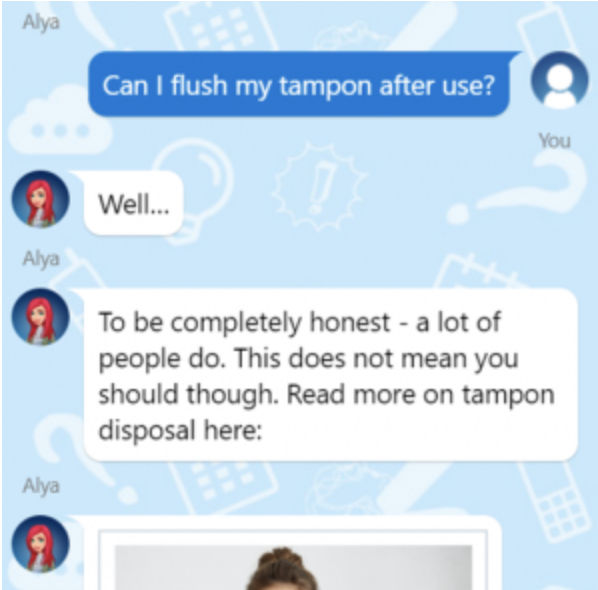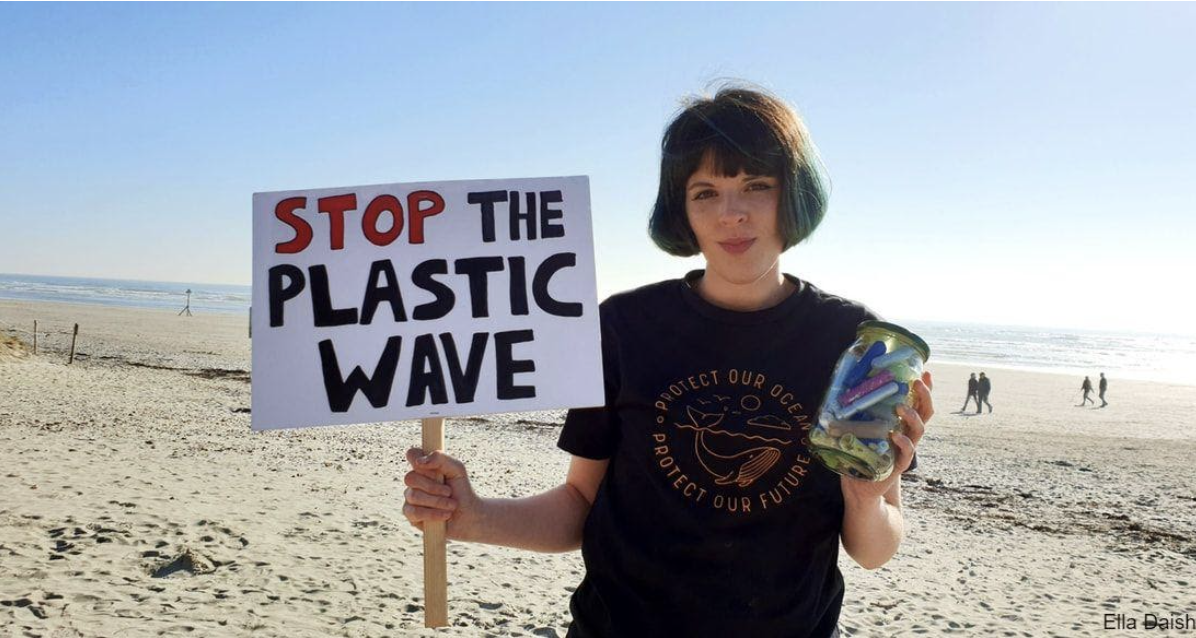Period Pride: Scotland’s a world-leader on period dignity for people but what about the planet?
Tuesday 24th November 2020. A proud evening for Scotland. Not only did Peter Sawkins become the first Scot to win the Great British Bake Off, but the Period Products (Free Provision) (Scotland) Bill passed unanimously in Parliament, making Scotland the first country in the world to provide free access to tampons and pads for all. This ground-breaking legislation will see universities, colleges, schools, and public buildings required to provide products free of charge. In recent years, there has been growing public awareness of the issue of “period poverty”, where some people in Scotland struggle to afford period products when they need them. Monica Lennon MSP and a host of grassroots organisations have been campaigning for a Bill which not only tackles period poverty, but starts an important discussion about menstruation, removing the pervasive stigma around this natural process. Plan International UK found that around 48% of girls, between the ages of 14 and 21, were embarrassed by their periods and 71% said they had felt embarrassed purchasing period products. This shame must go, and thankfully with the help of this legislation, we are on the right track.
While I celebrate this news, and congratulate all the tireless campaigners who have made history, I must admit that I read the Members Bill document with a keen eye for any mention of the word environment. In 2019, I contributed to research on the impact of disposable menstrual products on the marine environment in Scotland. In the UK as a whole, it is estimated that 1.5 and 2 billion menstrual products are flushed down toilets every year in the UK. These products cause blockages in the sewer systems, costing the taxpayer huge amounts to resolve, and contaminate our marine environments. Speak to any coast lover, they will tell you that plastic period products are a common site across Scotland’s beaches and rivers.
The period product market is worth approximately £265.8m in the UK and is dominated by disposable tampons and pads. Have you ever wondered what these ubiquitous products are made of? The most common tampon products are typically manufactured from materials such as cotton and viscose rayon, with super-absorbent fibres and plastics (hydrophobic polyester / polypropylene fibres), adding strength to the product. Household name pad-brands are made with rayon and absorbent wood cellulose, with added polymers such as polyolefins (polyethylene, polypropylene), polyester, and absorbent polyacrylate gel. Many brands also add fragrances, glues and gels. Disposable tampons and pads are mixed material products, designed to be disposed of after one use: the very definition of single use.
Moreover, the industry giants that manufacture plastic-based tampons and pads make limited effort to educate their users on how to properly dispose of products after use. We already know that menstruation is a taboo subject for many, shrouded in misinformation, so it does not help that major brands are not being clear with users that tampons and pads should never be flushed. My research found that one major tampon brand’s online customer service web portal, aimed at teenagers, normalises flushing of plastic-based products as shown below in Figure 1. When asked if period products can be flushed after use, the answer is always ‘no’ – there is no grey area – and disposable period product brands have a responsibility to communicate this effectively.
Figure 1 Tampon brand's customer service website
I was happy to see that the Members Bill document does recognise that disposable period products are currently having a negative environmental impact when disposed of incorrectly. There was also mention of providing access to ‘a range of products (including reusable options) … under the provisions of the Bill… users will be free to access the products best suited to them.’ Choice is important, but with large multinational brands dominating the disposable period product market for generations, is this really a fair choice? Plastic period products continue to be favoured by users because of their perceived ‘reliability’. For many users, plastic-based menstrual products work, and they do not want to risk trying anything else. In many cases, these mainstream plastic products are aggressively marketed as safe, normal, and discreet, whilst plastic-free or reusable alternatives – typically run by small companies with a much smaller marketing budget – remain strange to many users. Research by Zero Waste Scotland found that no users interviewed were offered ‘a reusable option as their first product’ when they started menstruating, and that users tend to stick with products recommended by family or trusted institutions (e.g. school). It is important to remember that there are complex social, cultural and personal reasons why many people choose plastic period products and this needs to be considered.
Environmental activist Ella Daish, who launched the #EndPeriodPlastic campaign in 2018, has worked with the Welsh Government to ensure that ‘50 per cent of all period poverty funding should be spent on eco-friendly products,’ including plastic-free tampons and pads, as well as reusable alternatives. It would be great to see the Scottish Government commit to the same.
Figure 2 Ella Daish, environmental activist and founder of #EndPeriodPlastic
Thanks to this landmark legislation, if you go online today, you will see an outpouring of period pride. For those of us who want to ditch the stigma around periods, this is incredibly exciting to see. But while we have the space for serious and considered discourse on menstruation, let us not allow this success to be another opportunity for industry giants to control the narrative. When it comes to communicating safe disposal, they do not have a great track record! Instead, let’s have variety and a real choice around how we manage our own menstruation. Let’s ensure that while we secure a safe and dignified period for all people, we do the same for the planet.
Have a look at Ella Daish’s blog post on eco-friendly alternatives: https://elladaish.com/blog/eco-period-brand-bible
References:
Grassroots organisations: Bloody Good Period, Free Period Scotland, On The Baw, Red Box Project
Plan International UK, Research on Period Poverty and Stigma
Resource Futures (2019) Plastic free periods will not be universal without shame-free periods
Zero Waste Scotland (2019) Consumer attitudes towards reusable menstrual products in Scotland
https://www.theargus.co.uk/news/18888086.ella-daish-awarded-campaign-period-plastic/
Written by Kate Chambers, 2050 Climate Group Trustee and Consultant, Resource Futures
Twitter: @theburdtweets
LinkedIn: /kate-chambers-ce/


